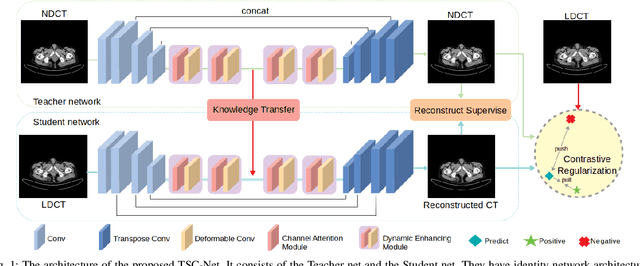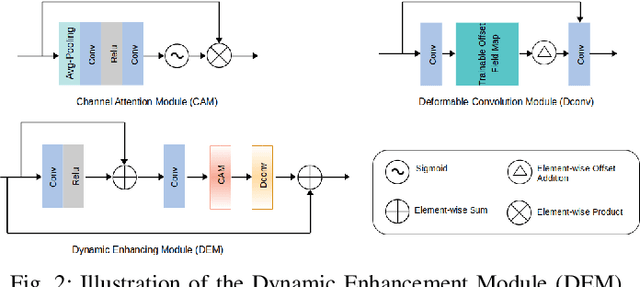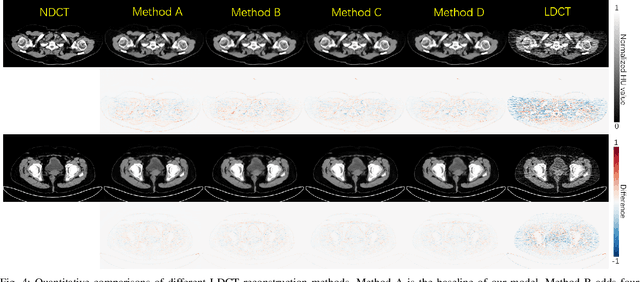Total-Body Low-Dose CT Image Denoising using Prior Knowledge Transfer Technique with Contrastive Regularization Mechanism
Paper and Code
Dec 06, 2021



Reducing the radiation exposure for patients in Total-body CT scans has attracted extensive attention in the medical imaging community. Given the fact that low radiation dose may result in increased noise and artifacts, which greatly affected the clinical diagnosis. To obtain high-quality Total-body Low-dose CT (LDCT) images, previous deep-learning-based research work has introduced various network architectures. However, most of these methods only adopt Normal-dose CT (NDCT) images as ground truths to guide the training of the denoising network. Such simple restriction leads the model to less effectiveness and makes the reconstructed images suffer from over-smoothing effects. In this paper, we propose a novel intra-task knowledge transfer method that leverages the distilled knowledge from NDCT images to assist the training process on LDCT images. The derived architecture is referred to as the Teacher-Student Consistency Network (TSC-Net), which consists of the teacher network and the student network with identical architecture. Through the supervision between intermediate features, the student network is encouraged to imitate the teacher network and gain abundant texture details. Moreover, to further exploit the information contained in CT scans, a contrastive regularization mechanism (CRM) built upon contrastive learning is introduced.CRM performs to pull the restored CT images closer to the NDCT samples and push far away from the LDCT samples in the latent space. In addition, based on the attention and deformable convolution mechanism, we design a Dynamic Enhancement Module (DEM) to improve the network transformation capability.
 Add to Chrome
Add to Chrome Add to Firefox
Add to Firefox Add to Edge
Add to Edge